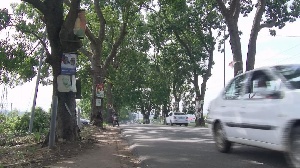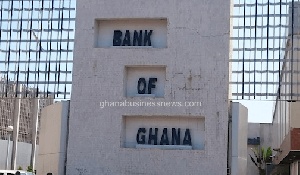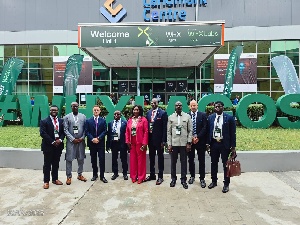- Home - News
- Elections 2024
- News Archive
- Crime & Punishment
- Politics
- Regional
- Editorial
- Health
- Ghanaians Abroad
- Tabloid
- Africa
- Religion
- Photo Archives
- Press Release
General News of Saturday, 24 May 2025
Source: www.ghanawebbers.com
Roots of resistance: The climate cost of cutting Accra’s trees
This week, chainsaws were heard near the Kwabenya Police Station in Accra. Authorities began pruning overgrown and weak branches from trees. Several mahogany and fragile trees have been marked for removal.
The Forestry Commission approved this operation. The Ghana Atomic Energy Commission (GAEC) received permission to fell eight mature mahogany trees, six leucaena trees, and prune 43 others. Officials cited safety concerns about weakened tree structures and power line entanglement.
Not everyone agrees with this decision. Many environmentalists and community members see it as a setback for Ghana’s climate agenda.
Daryl Bosu, Executive Director of A Rocha Ghana, called it “environmental sabotage.” He emphasized that roadside trees provide beauty and significant benefits. They clean the air and cool the environment.
A Rocha Ghana issued a statement urging an immediate halt to tree felling along the Atomic-Kwabenya highway. They stressed the need for a clear plan for replanting and maintaining green cover.
The group suggested that if trees must be cut, each removed tree should be replaced with two or more native species. Strict monitoring is necessary to ensure their survival.
Bosu's concerns reflect growing alarm among environmentalists in Ghana. The Atomic-Kwabenya road is one of the last surviving tree-lined areas in Accra. Critics argue that removing these mature trees undermines the city’s climate resilience.
The GAEC insists its actions are based on technical assessments of tree health and public safety. They stated they are following strict guidelines and remain committed to replanting.
The Forestry Commission supports this view, noting that GAEC has been instructed to replace any removed trees. Joyce Ofori Kwafo from the Forestry Commission confirmed that strict conditions were set for proper replanting.
However, critics like Zechariah Mwinisin from the Voluntary Work Camps Association of Ghana disagree. He believes cutting down these trees undermines efforts to combat climate change.
In 2022, the previous government allocated 6 million cedis to the Green Ghana initiative. In 2023, funding dropped to 2.5 million cedis—just over half a million dollars for two years of planting efforts. Environmentalists argue that cutting mature trees defeats these programs' purpose.
Environmentalists assert that removing mature trees contradicts best practices in climate adaptation. Climate scientists note large trees sequester more carbon than saplings and enhance urban biodiversity.
Joseph Adika, an environmental activist who loves trees, calls for education on their value in Ghana today.
As Accra becomes denser and hotter, Atomic-Kwabenya's trees symbolize a critical moment in Ghana’s development story—a test of balancing urban growth with environmental conservation.











